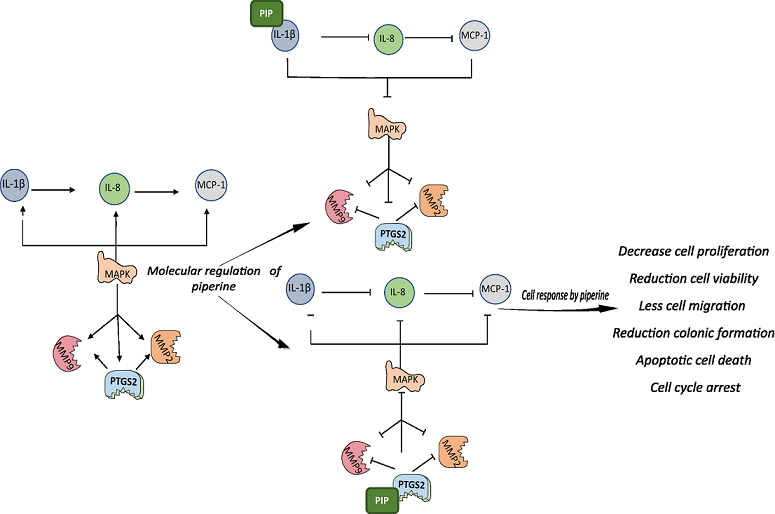Cervical cancer is the fourth most common type of cancer in the world that causes death in women. It is mainly caused by persistent infection by human papillomavirus (HPV) that triggers a chronic inflammatory process. Therefore, the use of anti-inflammatory drugs is a potential treatment option. The effects of piperine, an amino alkaloid derived from Piper nigrum, are poorly understood in cervical cancer inflammation, making it a target of research. This work aimed to investigate the antitumor effect of piperine on cervical cancer and to determine whether this effect is modulated by the cyclooxygenase 2 (PTGS2) pathway using in vitro model of cervical cancer (HeLa, SiHa, CaSki), and non-tumoral (HaCaT) cell lines. The results showed that, piperine reduces in vitro parameters associated with neoplastic evolution such proliferation, viability and migration by cell cycle arrest in the G1/G0 and G2/M phases, with subsequent induction of apoptosis. This action was modulated by downregulated of cyclooxygenase 2 (PTGS2) pathway, which in turn regulates the secretion of cytokines and the expression of mitogen activated protein kinases (MAPKs), metalloproteinases (MMPs), and their antagonists (TIMPs). These findings indicate the phytotherapeutic potential of piperine as complementary treatment in cervical cancer.

